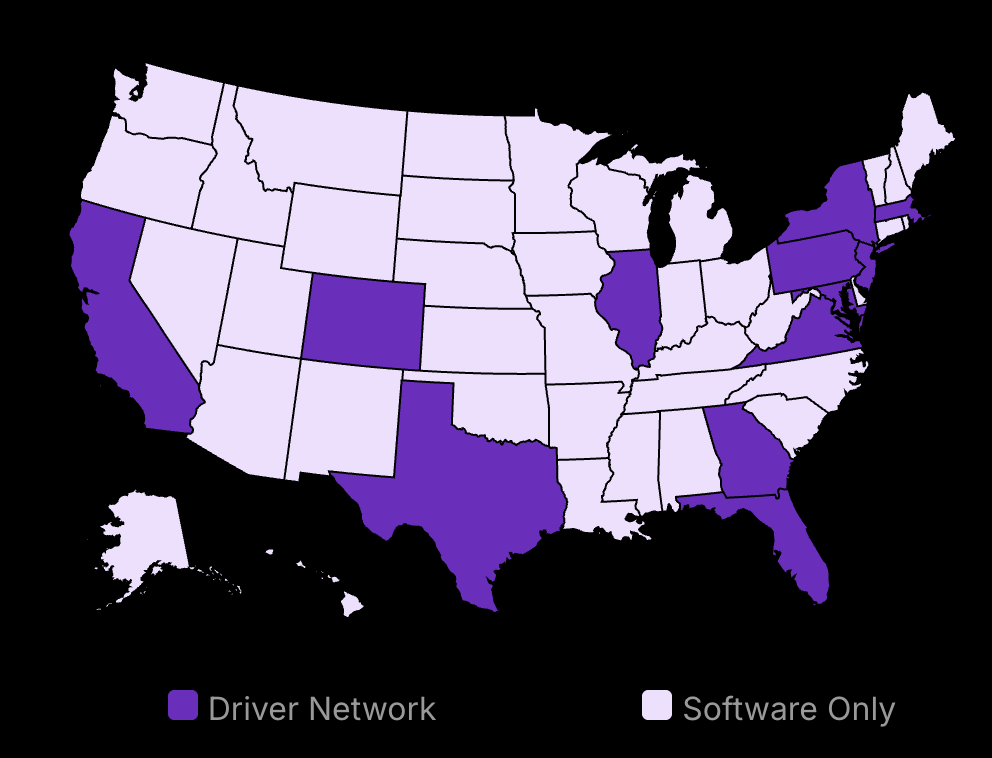Outsourcing HR can save your small business money and give you access to expert advice, especially when partnering with HR companies for small business. Discover how outsourcing can enhance your small business’s human resources management by reading our comprehensive guide on effective team management strategies.
But there are risks too.
This review will cover both sides to help you decide if outsourcing HR is right for your business.
From cost savings to potential communication issues, we’ll lay out all the information you need.
Ready to see if outsourcing is a fit for your business in 2024?

Lower your delivery costs by 23%
How we reduce costs:
- No delivery vehicle expenses
- Optimized local routes
- Pay-per-delivery model
- Average 23% delivery cost reduction
Why Outsource HR Services for Small Business?
HR Outsourcing Services Benefits For Small Businesses
Cost savings on hiring in-house staff
Small businesses can save significant money by outsourcing HR functions. Reports show that using third-party HR services can reduce costs by up to 27.3%. This is similar to industry findings that suggest outsourcing non-core activities can lead to a 20-30% decrease in overall expenses. These savings come from not having to pay salaries, benefits, and training costs for in-house HR personnel. Discover how outsourcing human resources for small businesses can transform your operational efficiencies and cost savings.
Access to expert HR professionals
Outsourcing HR provides small businesses with immediate access to qualified HR professionals. These experts are updated with the latest in HR regulations, laws, training requirements, and best practices. This is crucial for small businesses that may not have the resources to hire top-level HR staff.
Approximately 85% of businesses now outsource some or all of their HR functions, highlighting a growing trend.
Allows business owners to focus on core activities
Outsourcing HR frees up time for business owners to focus on core activities. Without the burden of HR tasks, owners can dedicate their energy to strategic planning and growth.
Outsourced HR services handle tasks like payroll management and employee benefits. This not only streamlines processes but also frees up management’s time for decision-making.
HR outsourcing disadvantages for small businesses
Less control over HR policies
One downside to outsourcing HR services is the reduced control over HR policies. When HR functions are outsourced, the external provider manages most HR activities, which might not always align with the company’s culture or specific needs.
Businesses need to carefully choose an HR provider whose practices align with their values to mitigate this issue. It’s important to regularly review the service level agreements (SLAs) and ensure the outsourced policies are in sync with the company’s objectives.
Potential communication issues
Outsourcing can lead to communication challenges. Keeping clear lines of communication with an external in house HR department or service provider can be tricky, leading to misunderstandings or delays.
Small businesses should establish strong communication protocols and regular check-ins to minimize these problems. Regular updates and feedback loops are essential to ensure that both parties are on the same page.
Risk of data security breaches
Data security is another concern when outsourcing HR. Handling sensitive employee information comes with risks, including the potential for data breaches.
Small businesses should ensure that their HR outsourcing partner has robust security measures in place. This includes encryption, secure dedicated IP servers, and stringent access controls.
“Ensuring data security is paramount when dealing with an external HR software provider. Regular audits and security reviews can help in maintaining a secure environment,” advises Michael Brown, a cybersecurity analyst.
By considering both the advantages and disadvantages, small businesses can make informed decisions about whether to outsource HR functions. It’s crucial to weigh the cost savings and expert guidance against the potential risks and communication challenges.
Next, we’ll delve deeper into the specific benefits of best HR outsourcing services for small businesses, offering a closer look at how it can lead to cost savings and improved compliance.
HR Outsourcing Benefits for Small Businesses
Cost Savings
Reduced Payroll Expenses
Outsourcing small business HR services can significantly cut down on payroll expenses. Small businesses often can’t afford to hire a full HR team. By using hr outsourcing providers, they can access professional HR services without the burden of full-time salaries. This is more cost-effective, especially for startups and small companies. Identify HR challenges for small enterprises and explore solutions to maintain an efficient, satisfied workforce.
Lowered Costs for Benefits and Training
Benefits and training can be expensive when handled in-house. Outsourcing these functions usually means lower costs overall. HR service providers already have systems in place to manage training and benefits efficiently. They often negotiate better rates for benefits, which means savings for small businesses.
Expertise and Compliance
Access to HR Professionals
Having access to experienced HR professionals can make a big difference professional employer organization. These experts bring a wealth of knowledge and skills that small businesses may lack. This can lead to better hiring talent management practices, increased employee satisfaction, and improved overall company performance.
Ensures Compliance with Labor Laws
Keeping up with labor laws is crucial but time-consuming. Outsourcing firms specialize in this area. They stay updated with the latest regulations and ensure your business complies with them. This reduces the risk of fines and legal issues.
Focus on Core Business
Frees Up Management Time
When HR tasks are outsourced, management can focus more on core business activities. This helps in strategic planning and scaling the business. Managing complex HR issues in-house can be a distraction that takes away from growth opportunities.
Helps Improve Productivity
With HR functions offloaded to an external firm, the internal team can be more productive. Employees can concentrate on their primary roles without getting bogged down by HR tasks. This can lead to a more efficient workplace overall.
HR Outsourcing Disadvantages for Small Businesses
-
Outsourced HR might not fit your company culture.
-
You may face communication issues and data security risks.
Loss of Control
When small businesses outsource or manage HR themselves, they inherently yield some measure of control. You may find that external HR professionals do not mesh well with your company’s culture or values. These professionals work outside your organization and may not fully understand the nuances of your workplace dynamics.
Misalignment with Company Culture
External and HR compliance teams implement general policies that may not fit your company’s unique environment. This mismatch can cause friction and dilute your company’s identity. Aligning outsourced HR policies with internal values is challenging and requires continuous oversight, which can mitigate some cost savings.
Policy Control
You might have limited influence over policies when they are executed by an outsourced team. Vendors follow their standardized procedures, which could be rigid. Your ability to shape specific elements of these policies to fit your needs is restricted, reducing flexibility and adaptability.
Communication Issues
Maintaining clear communication is crucial in effective HR management. Outsourcing HR support can introduce several communication hurdles that range from minor misunderstandings to significant delays that impede workflow. Employees may find it difficult to engage with off-site expert HR support professionals effectively.
Response Times
Response times can be slower when dealing with outsourced HR departments, which can lead to frustration and inefficiencies. In urgent situations, an immediate response might be crucial, and delays can have serious consequences. Employees facing personal or work-related issues might not get timely resolutions.
Clarity and Miscommunications
A lack of face-to-face interaction often results in miscommunications. Misunderstandings are more frequent in written communications compared to verbal interactions. This could affect employee satisfaction and lead to further organizational issues.
Data Security Risks
Outsourcing HR involves sharing sensitive company and employee information with a third party. This increases the risk of data breaches. You must ensure your vendor’s security measures are robust and regularly updated to safeguard sensitive data.
Vendor’s Security Protocols
It’s essential to vet the security protocols of any potential HR outsourcing partner. Not all vendors have the same level of security. Ensure compliance with regulatory data protection standards, and consider running regular audits to verify that these standards are maintained.
Potential Breaches
Data breaches can have devastating effects on small businesses. They can lead to financial losses, legal issues, and damage to your reputation. A breach may expose you to lawsuits from employees whose data was compromised. Verify vendors with a strong track record of secure services.
Impact on Employee Relations
A significant drawback of outsourced HR is its potential impact on employee relations. Internal HR teams usually have a better grasp on individual employee needs and company-specific dynamics, which is difficult for an external team to replicate.
Personal Touch
Employees might feel disconnected from the HR function when it is managed externally. This disconnect can affect their engagement and satisfaction. Building a meaningful, personal relationship with the the in house HR team or manager is harder when managed through a third party.
Dependence on External Expertise
Over-reliance on external expertise can sometimes be a disadvantage. If the vendor underperforms, your internal team might not be equipped to take over the functions seamlessly. Developing an internal backup plan is crucial to avoid potential disruptions.
Best HR Outsourcing Provider Companies for Small Businesses
ADP TotalSource
-
Comprehensive HR solutions: ADP TotalSource offers a complete range of HR services, including payroll, benefits, and compliance.
-
User-friendly platform: We found ADP’s platform easy to navigate, which enhances productivity.
-
Positive reviews for customer service: Many users have praised the responsive customer support.
-
Pricing: Custom quotes.
Insperity
-
Tailored HR services: Insperity provides services that match specific business needs.
-
Strong payroll and compliance support: We noted robust support for compliance and efficient payroll processing.
-
Good customer feedback: Reviews often highlight Insperity’s high customer satisfaction.
-
Pricing: Custom quotes.
Paychex
-
Wide range of HR services: Paychex covers many aspects from payroll to benefits.
-
Scalable solutions for small business: Suitable for growing businesses due to scalable services.
-
High ratings for ease of use: Users report Paychex is straightforward to use, which is vital for small teams.
-
Pricing: Custom quotes.
Cost Analysis of HR Outsourcing for Small Businesses
Breakdown of costs
Initial setup fees
When outsourcing HR, you can expect to pay initial setup fees. These cover the costs of integrating your existing HR data and processes into the outsourcing firm’s system. Setup fees can range from a few hundred to several thousand dollars, depending on the complexity of your current HR system.
Monthly flat fees based on employee count
There’s also a monthly fee based on how many employees you have. Many HR outsourcing companies charge a flat rate per employee per month. This can range from $45 to $1500.
For example, if you have 10 employees and the rate is $100 per employee per month, you would pay $1000 monthly. This fee covers routine HR administration services like payroll processing, benefits administration global payroll, and compliance management.
Hidden costs to consider
Additional fees for specific services
Outsourcing firms often charge extra for specific services like recruitment, employee training, or employee conflict resolution. It’s essential to clarify what’s included in your contract and what will incur additional fees. For instance, assistance with labor law compliance or handling workplace investigations may come with additional costs.
Potential costs from data breaches and non-compliance
If your HR outsourcing service provider suffers a data breach, your business might incur costs related to data recovery, legal fees, and fines. Also, non-compliance with labor laws can result in penalties. Therefore, the security measures and compliance practices of your best HR outsourcing service provider are crucial.
Typical pricing models
Per-user monthly rates
Many HR outsourcing services offer per-user monthly rates. These rates are straightforward as you pay a set fee for each employee. Rates can vary greatly, depending on the extent of services provided.
For instance, a standard rate might hover around $100 monthly per employee for basic HR services. This model benefits businesses with consistent employee numbers.
Percentage of payroll expenses
Another common pricing model is charging a percentage of your payroll. Typically, this ranges from 2% to 10% of your total payroll expenses each pay period. This approach aligns the cost with your actual business expenditures and can be more flexible during scaling.
Addressing common questions
Is outsourcing HR cheaper?
Outsourcing HR can be cheaper, especially for small businesses. The potential savings of 22% on HR operations can significantly impact smaller budgets.
How much does outsourcing services cost?
Costs can vary, but most HR outsourcing services can range from $45 to $1500 per employee management month, depending on the number of employees and selected services.
What is the average cost of HR department?
Maintaining an in-house, dedicated HR department can be expensive. On average, businesses spend around $120,000 annually, which includes salaries, benefits, and training for a dedicated HR manager and staff.
What to charge for HR consulting services?
HR consulting services often charge hourly rates or project-based fees. Hourly rates can range from $100 to $350, while project fees are usually negotiated based on scope and complexity.
Supplementary Information
-
80% of companies in the US outsource at least one HR function.
-
Outsourcing HR functions can reduce related costs by up to 70%.
-
Choosing the right HR outsourcing company requires evaluating specific needs and vendor reputation.
HR Functions Typically Outsourced
Outsourcing HR has become increasingly common among small businesses. The functions often outsourced include:
Payroll Processing
Payroll processing is a time-consuming task prone to errors when handled internally. By outsourcing payroll, businesses can ensure timely and accurate salary distribution. According to a study, payroll administration errors can lead to losses amounting to $845 per employee annually. Automation by third-party services reduces this risk significantly.
Employee Benefits Administration
Administering employee benefits involves managing retirement plans, health insurance, and other perks. This can be complex due to regulatory changes and diverse employee needs. Outsourcing this function ensures that employees receive their benefits efficiently while compliance with state and federal laws is maintained. Reliable sources estimate that outsourcing benefits management can reduce related costs by 40%.
Recruitment and Onboarding
Hiring new employees requires a lot of resources. Outsourcing recruitment allows access to extensive talent pools and ensures a streamlined hiring process.
HR Functions that Should Not Be Outsourced
While outsourcing has its advantages, some HR functions are best kept in-house.
Strategic Planning
Strategic planning involves setting long-term goals and aligning HR practices with the company’s vision. An intimate understanding of the business makes it challenging for the human resources functions, capital management and external parties to manage this effectively. Books like “Strategic Human Resource Management” by Jeffery A. Mello dig deeper into how internal HR teams can harness strategic advantages.
Company Culture Initiatives
Company culture defines how employees interact with each other and with the organization. Outsourcing this can dilute the company’s core values. For example, Google has an internal HR team that continuously fosters its unique culture, which has been crucial to its success.
Employee Relations and Conflict Resolution
Handling employee relations, performance management and conflict resolution requires a nuanced understanding of individual dynamics and organizational structure. Conflict resolution can be delicate and must be managed by someone who knows the company’s values and processes. External HR providers may not always capture these subtleties.
Factors to Consider When Choosing an HR Outsourcing Company
Choosing an HR outsourcing company isn’t a decision to make lightly. Consider these factors:
Company’s Specific HR Needs
Identify which HR functions you need to outsource. Some companies may only need payroll services, while others might require comprehensive solutions. “Do what you do best and outsource the rest.” – Peter Drucker. Assessing your internal strengths and weaknesses will guide you better.
Vendor Experience and Reputation
Evaluate the experience and reputation of the potential vendors. Look for providers with positive reviews and testimonials. Books like “LinkedIn Sales Navigator” can help you research vendors’ backgrounds and customer satisfaction rates.
Data Security Measures in Place
Data security is crucial as HR involves sensitive employee information. Ensure that the potential vendor complies with data protection regulations like GDPR or CCPA. Vendors should have robust security protocols and be transparent about their data management practices.
Cost Considerations
Understand the full scope of costs, including setup fees and ongoing expenses. Hidden costs can erode the anticipated savings from outsourcing. Engage with vendors who provide clear and detailed cost breakdowns.
Service Level Agreements (SLAs)
Service level agreements define expectations and accountability. Ensure that the SLA includes metrics for performance, response times, and compliance.
HR Companies for Small Business: Making the Right HR Move for Your Small Business
Outsourcing HR can save costs, bring in expertise, and let you focus on your core business. But it comes with trade-offs like less control, communication problems, and data security issues.
Consider the specific needs of your company and weigh the benefits against the disadvantages. Explore vendors like ADP TotalSource, Insperity, and Paychex to see if they suit your needs.
Evaluate the costs carefully, including any hidden fees. Check the vendor’s reputation and their data security measures. What specific HR functions does your business need help with the most?
Ready to take your small business HR outsourcing strategy to the next level? Start by assessing your current HR needs and determine what areas could benefit from outsourcing.



























